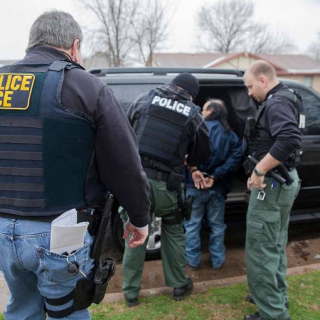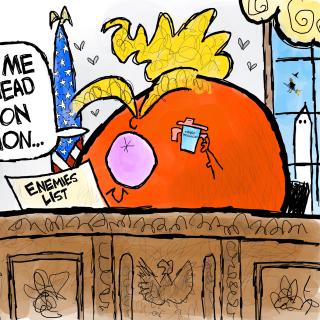Advertisement
After the assassination of President John F. Kennedy, nobody other than his widow, Jacqueline, suffered worse than his brother, Robert, the attorney general. For Robert, his relationship with his brother was everything; he scarcely existed outside of it Pain was seared into his face and was palpable; within a few weeks after the murder, he seemed to have aged years. The death of President Kennedy and the end of all they hoped to accomplish so unsettled RFK that family and friends feared for his well being. In the end, it was his wife, Ethel, who brought him around. A very devout Catholic, she was certain that the president had gone straight to Heaven and they would be together again for all eternity.
Robert Kennedy was the seventh of nine children, and by his own admission, struggled to be heard. The shortest and smallest of the Kennedy brothers, he was soft hearted, devout–his mother, Rose, hoped he would become a priest–and had three older sisters. Until his successful management of his brother Jack’s 1946 campaign for Congress,his father, Joseph P. Kennedy, the former ambassador to the Court of Saint James, scarcely paid him any attention. What he lacked in personality and stature, though, he made up for with an iron will, dogged determination, and extremely hard work.
The attorney general played the fall guy for the president; he was the one who said no. He had a laser like focus on advancing his brother’s career, and let nothing interfere with that. The word most often used to describe him was ruthless. RFK also had a moralistic streak that made him seem self-righteous; it annoyed even the president. That characteristic, however, helped him grasp before his brother did that the freedom movement was a moral issue. And then everything was gone.
In the weeks and months after the assassination, Kennedy borrowed the president’s clothes and gestures and collected honors in his name. At times he was like a pendulum, swinging between canonizing his brother and charting his own way for the first time in his life. A terrific example of his unmoored soul was the effort he made to get President Lyndon B. Johnson to choose him as his running mate in the 1964 election. RFK well knew what an inconsequential job the vice presidency was, and how miserable it made LBJ. Moreover, he and Johnson loathed each other, and during the Kennedy administration, LBJ endured many slights at the hands of Kennedy advisors. Being an understudy to Johnson would have been unbearable, yet he was hurt and angry when LBJ told him he would not be chosen. Clearly, Kennedy was unhinged by desperate grief and grasping at anything that would allow him to keep his brother near him.
Johnson did try, however, to get along with RFK. He was, for the most part, solicitous of the Kennedy family, especially Jackie Kennedy. He wrapped himself in the Kennedy mantle, keeping on the president’s staff–“I need you more than he did,” he told them–and promised to support the late president’s initiatives, especially the civil rights bill, in his memory. He sent RFK on trips abroad, where he was often treated like a rock star. These were things LBJ needed to do if he was to have any chance of winning the presidency in his own right in 1964, and so he did them. But neither man could keep up the pretense of being close colleagues, and RFK resigned in September, 1964, to run for the United States Senate from the state of New York. Kennedy was no shoo-in, and there were plenty of politicians and officials who intensely disliked him. In spite of their intense dislike for each other, RFK needed Johnson, and the president campaigned for him. Their slogan was “Get on the Johnson-Humphrey-Kennedy team. ”While he thanked the president in private, he could not bear to do so publicly.
The Revolution of Robert Kennedy reminds us that neither of the Kennedy brothers were as saintly as the myth making machine has presented them. As was his brother, RFK was a rich, powerful, hard headed politician, and used to obedience and loyalty. He did not suffer fools gladly. Like the cartoonist Jules Feiffer, Bohrer presents the good Bobby and the bad Bobby. The good Bobby, all teeth and hair, acted as the family patriarch, genuinely cared about racial minorities and the poor, and had a magic touch with children. The bad Bobby schemed mightily behind the scenes to be chosen as LBJ’s running mate, settled political scores, and browbeat people who testified before the Senate. But unlike Feiffer’s caricature, Bohrer’s Bobby is a complicated and complex man. While Bohrer does not deify RFK, he resisted the urge to rake Kennedy over the coals as so many biographers have done. He has written a well researched and compelling book.
Since the book covers only the years from 1963 through 1966, I think what we really see is Kennedy’s evolution. Had the book covered one more year, we would have seen RFK’s fateful trip to the impoverished Mississippi Delta, his growing alarm about the trajectory of the Vietnam war, and a man who was every bit as impatient to make his mark as was his late brother.
In those last two years of his life, there was a burning intensity about Robert Kennedy that in hindsight made it seemed as though he, too, knew that there was not very much time left. It was those years that were revolutionary.



